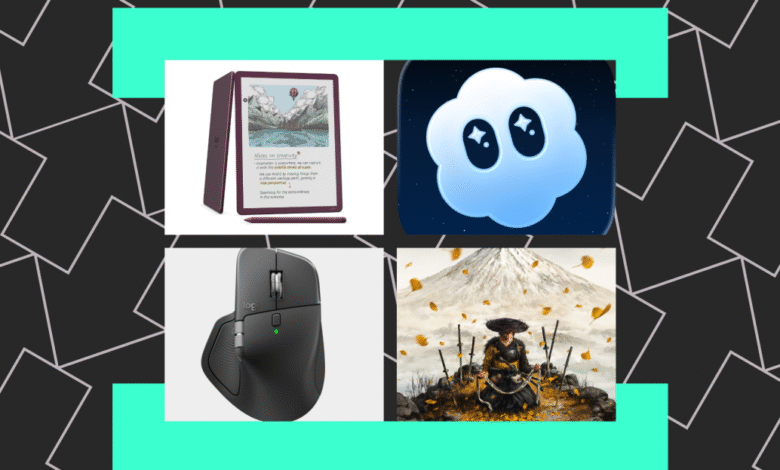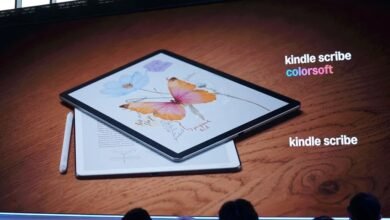Master Your Lists: The Ultimate Guide to Organizing Your Life

▼ Summary
– Installer newsletter is transitioning to a subscriber-only model, requiring a Verge subscription for web access but maintaining email delivery for current subscribers.
– The author highlights several new tech products including Amazon’s Kindle Scribe Colorsoft e-reader and Logitech’s MX Master 4 mouse with haptic feedback.
– AI tools like Sora for AI-generated videos and Claude Sonnet 4.5 for coding are discussed as rapidly advancing technologies.
– Gaming recommendations include Ghost of Yōtei, a sequel to Ghost of Tsushima, and Final Fantasy Tactics: The Ivalice Chronicles for PS5.
– The community section shares reader tips on list-making tools, with favorites including Todoist, Notion, and traditional pen and paper.
Organizing your life effectively often begins with mastering the art of list-making, a simple yet powerful tool for bringing order to daily chaos. This approach helps prioritize tasks, track goals, and ensure nothing important slips through the cracks. Whether you prefer digital apps or traditional pen and paper, finding a system that works for you can transform productivity and reduce stress.
Welcome to the 100th edition of this guide, a milestone made possible by everyone who reads, shares ideas, and participates each week. If you are just joining us, you have arrived during an exciting period for new gadgets and updates. We are also approaching a significant change: starting next weekend, this newsletter will be available exclusively to subscribers. Current email recipients will see no disruption, but anyone who reads online will need a subscription to continue. My goal is a smooth transition for all, so please reach out directly if any issues arise.
Now, let’s explore some standout new releases and updates.
Version History, a fresh show from our team, launches this weekend on The Verge’s YouTube and podcast feeds. Subscribing, rating, and sharing your episode ideas would mean a great deal.
Sora, an app filled entirely with AI-generated videos, has been on my mind lately. It’s hard to decide if this concept is ingenious or unsettling. The output quality from Sora 2 is genuinely impressive, accelerating us toward a future where distinguishing real content from AI becomes increasingly difficult.
Developers are buzzing about Claude Sonnet 4.5, praising its enhanced capabilities for handling complex coding tasks. I am considering using it to finally complete a personalized note-taking application.
Gaming enthusiasts should note Ghost of Yōtei, the follow-up to Ghost of Tsushima. Early reports suggest it delivers the same expansive, gripping experience with combat that fans are celebrating.
Comet, Perplexity’s AI-powered browser, is now publicly available. While its autonomous features are still developing, the “chat with your tabs” functionality is becoming a familiar and useful standard.
Amazon’s latest hardware includes the Kindle Scribe Colorsoft. It focuses on critical upgrades like reduced writing latency and better tool integration. Priced at $630, it is certainly an investment, but note-takers and comic readers seem eager nonetheless.
The Echo Dot Max also stands out. If you primarily want a speaker for music and basic tasks without AI complexities, this could be a good fit. However, waiting a few months might lead to significant price drops.
I am cautiously curious about Final Fantasy Tactics: The Ivalice Chronicles. Friends deeply immersed in the series are hooked, warning me about its dangerously engaging complexity.
Kagi News is a valuable new feature from my preferred search engine, offering a daily summary of major stories with AI-assisted overviews and extensive source material.
Adobe Premiere for iOS has officially arrived. While not packed with every desktop feature, it represents a solid beginning for mobile video editing, with an Android version reportedly in development.
The Logitech MX Master 4 mouse continues a respected lineage. The new model includes haptic feedback for precision work and a customizable shortcut button that invites endless tinkering.
Microsoft Excel recently celebrated its 40th anniversary. The BBC’s “Witness History” podcast has a delightful short episode exploring how spreadsheets became ubiquitous.
Many readers shared their own list-making habits, revealing a common affinity for organization. Popular categories include packing lists, saved product manuals, contacts to stay in touch with, children’s artwork, favorite quotes, and nostalgic music playlists.
When it comes to tools, a surprising number of people prefer pen and paper, having tried numerous apps only to return to analog methods. Todoist emerged as a top choice for digital to-do lists due to its flexibility and cross-platform availability. Notion is favored for managing intricate systems beyond simple lists. Built-in options like Apple Notes, Google Keep, and Apple Reminders also have dedicated followings. Spreadsheet applications such as Google Sheets and Excel are widely used, despite often-criticized mobile interfaces. Other notable apps include Craft, Obsidian, AnyList for groceries, Letterboxd, and Trakt for media tracking.
It is reassuring to know so many others find comfort and clarity in lists, even while juggling multiple platforms. I currently use Workflowy, but your suggestions have introduced several new options to test.
For this special edition, Marques Brownlee shared his homescreens. On his Pixel 10 Pro and iPhone 17 Pro, he uses wallpapers from Backdrops. Key apps include Superhuman, Photos, Discord, Arc Search, Notion, Instagram, Relay, Phone, Messages, Spotify, and TickTick on Android. His iPhone setup features Photos, Camera, Spotify, Settings, Carrot Weather, YouTube, YouTube Studio, Waze, Not Boring Habits, Superhuman, Copilot, TickTick, Phone, Tesla, and Arc Search. He relies on Arc for quick searches despite using Safari as his default and appreciates the Pixel’s lock screen wallpaper effects.
Marques also mentioned enjoying the sports-themed Connections puzzles from The New York Times, the Athlytic app for consolidating health data from his Apple Watch, and expressed frustration with Arc’s recent changes, leaving him seeking a new browser.
The community recommendations this week are particularly strong. Spencer improved drive-in movie audio using an FIIO RR11 portable radio connected to a Soundcore Motion x600 speaker. Tim is happily replaying Super Mario Galaxy 2 in 4K on the Switch 2, despite the cost. Daryl suggests Everlog for journaling, praising its lifetime subscription and ability to update past entries. Bob is excited for Digimon Story: Time Stranger on PS5, calling it a high point for the series. Adi is reading Caitlín R. Kiernan’s “The Red Tree” for spooky season, enjoying its layered horror narrative. Bryan recommends Brave Search’s “Ask Brave” feature as a privacy-focused alternative to AI-assisted Google searches. Sean and his partner watch Simply Aviation on YouTube for economy-class flight reviews. Rich is impressed with the Rode Wireless Go Gen 3 microphone for its local recording and battery life. HollowedLeaf switched to Ugmonk’s Analog paper system for task management, finding it less distracting than digital apps. Ben is hooked on Hades II for the Switch 2, noting its addictive progression and new features.
This week brought many announcements, but a small Spotify update brought me the most joy: you can now exclude specific songs from influencing your taste profile. This means your recommendations and playlists won’t be affected by those tracks. I immediately removed numerous toddler favorites and a few personal guilty pleasures. Every entertainment platform should implement a “don’t hold this against me” option, imagine how much more relevant Netflix suggestions could be. For now, at least my music discovery feels personal again.
(Source: The Verge)





